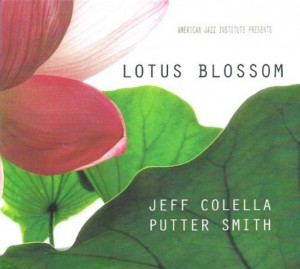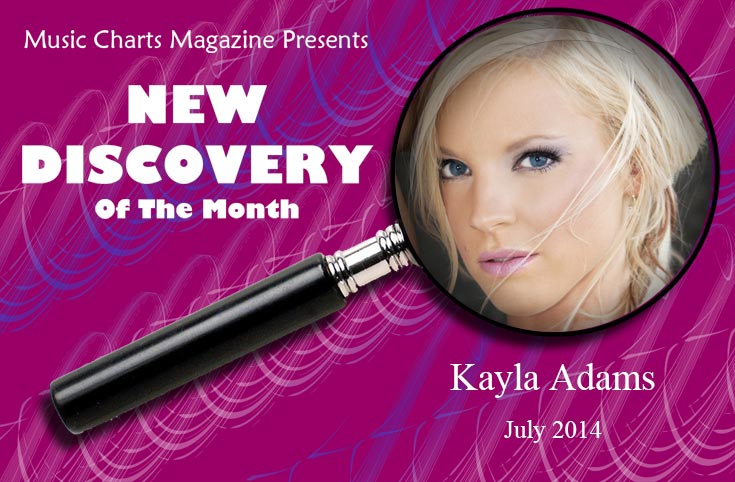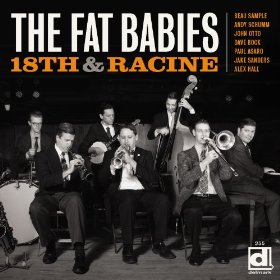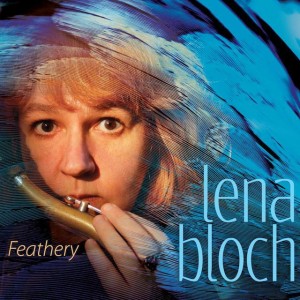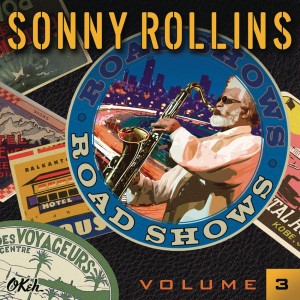JasonR
 I wasn’t familiar with Rachele Lynae until I listened to her self-titled debut album. When I started listening, I immediately headed over to her web site to read her bio, and find out a little more about her. She grew up in Kodiak, Alaska, and started singing at a very early age. By the time she was 10 years old she had already been singing in church for five years. She started writing songs when she was 12, and at age 17 she started doing live shows, and building a reputation as a ‘riveting live performer’.
I wasn’t familiar with Rachele Lynae until I listened to her self-titled debut album. When I started listening, I immediately headed over to her web site to read her bio, and find out a little more about her. She grew up in Kodiak, Alaska, and started singing at a very early age. By the time she was 10 years old she had already been singing in church for five years. She started writing songs when she was 12, and at age 17 she started doing live shows, and building a reputation as a ‘riveting live performer’.
She moved to Nashville to attend Belmont University. That is a great music school, and is also where Josh Turner, Trisha Yearwood and Brad Paisley went to school. Rachele has been performing at Nashville’s famous clubs, and recorded a five song EP, which shared with Jimmy Murphy – who shared it with his daughter, Jamie O’Neal. That was all it took.
Jamie and Rachele began working on the new album. Rachele co-wrote every song on the album, Jamie produced it. Four of the songs even had Jamie in that ‘co-writer’ seat.
“Done is Done” was written by Rachele and Luke Sheets. The title pretty much tells you what to expect from the song. Someone is about to get their heart broken. Someone is leaving. What is “Done is Done”. There aren’t any surprises with this song, and yet it was one of my favorites. Her vocals, which are so strong and so powerful in some of the faster songs, actually have a softer side. Even when Rachele slows things down, she still has perfect control, and perfect tone. And she still makes you want to see her on stage.
I jumped all the way down to the 10th track (Done is Done) there – let me list them all for you, in order, with their writers, and tell you a little about some of the rest of them. Here is what you are going to get on this new album: Touch the Stars, Rachele Lynae, Danick Dupelle, Patricia Conroy; Words in Red, Rachele Lynae, Kyle Stallons; Cigarette, Rachele Lynae, Katelynn Beckett; Sometimes You Fly, Rachele Lynae, Luke Sheets; Party Til the Cows Come Home, Rachele Lynae, Jamie O’Neal, Stephanie Bentley, Jimmy Murphy; Fishin for Something, Rachele Lynae, Hannah Bethel; Clean, Rachele Lynae, Justin Halpin; Out On the Floor, Rachele Lynae, Jimmy Murphy, Jamie O’Neal; Sticky Summer Lovin, Rachele Lynae, Jamie O’Neal, Hannah Bethel; Done is Done, Rachele Lynae, Luke Sheets; Two for One Special, Rachele Lynae, Jamie O’Neal, Shaye Smith; Old Fashioned Love, Rachele Lynae, Josh Holiday.
By the time I got to the end of the album, I realized I had a lot of favorite songs. Leading the pack for me are “Done is Done” and “Sometimes You Fly,” but if they don’t end up being your favorites, no need to worry! You are definitely going to find a lot you like among the 12 songs on this CD. The first song very much falls into the category of ‘country/pop’, and is very much like a lot of the songs you hear on today’s Top 40 stations. It is an upbeat song, and I can’t imagine Rachele being able to stand still and sing that one.
The second song, “Words in Red” gave her a great opportunity to showcase her vocals. With a title like “Cigarette” I wasn’t really sure what to expect from this song. But it’s a great song. I think we will all understand the lyrics, and I think most of us have probably been there at one time or another. The song is about regret.
I don’t know what Rachele plans on releasing as a single, but if I were asked, I would to point to “Clean”. This song made me think about growing up’’; about my family; getting hurt as a kid; Mom always being ready with warm, soapy washcloth; church; leaving home; and, coming back. All that in addition to the fact that it is a beautiful song, being sung by an artist with a beautiful voice. This song, more than any of the others on this album, sounds ‘country’ to me. It isn’t country/rock, or country/pop, or country/soul, or country/blues, or country/jazz … it is country.
“Old Fashioned Love” is another great ballad. I like songs that have memorable lyrics. After listening to the album three times, I found myself singing along with this one – and actually waiting for it to come around again.
Regardless of your taste, you are going to find music on this CD that you like, and you will find music that will make you want to sing, dance, tap your feet, close your eyes and relax, think back, and play again.
To learn more about Rachele, visit her web site at www.rachelelynae.com. You can also follow her on Twitter @Rachele Lynae. Keep up with all the latest country music news at www.countryschatter.com, and follow us on Twitter @countryschatter.
Music Charts Magazine Country music CD Review of Dolly Parton - Blue Smoke - by Donna Rea /of the website we all know and love: www.CountrysChatter.com
Artists’ names = Jeff Colella and Putter Smith; Jeff Denson and Joshua White
Genre = Jazz
Title = Lotus Blossom; I’ll Fly Away
Record companies = American Jazz Institute; pfMENTUM
Review =
Though I cannot identify the first recorded piano-bass duet, Duke Ellington and Jimmy Blanton recorded four duets in 1940. Oscar Pettiford (later to be Ellington’s bassist) recorded two with pianist Clyde Hart in 1944, one dedicated to Blanton, though this music is not known to exist. Bassist Red Mitchell recorded two albums of duets with pianists, one with Guido Manusardi (1974) and another with Kenny Barron (1986). Bassist Ray Brown recorded three such albums, two with Jimmy Rowles in the late 1970s and, early that decade, one with Ellington titled This One’s for Blanton. Beginning with a session with Hampton Hawes in 1976, bassist Charlie Haden might have been involved in more duet recordings than anyone, having also participated in sessions at least with Chris Anderson, Kenny Barron, Egberto Gismanto, and Hank Jones. Piano-bass duets continue being performed, as two recent CDs illustrate.
Pianist Jeff Colella and bassist Putter Smith recorded together initially in the 1990s. They recently reunited for an album of duets linked by mood, which is mainly subdued, introspective. As a result of the deliberate tempos, one can hear every note and appreciate the interplay between the two men. Colella states the melodies and Smith supports him, always playing pizzicato. While they both solo attractively and together do justice to the compositions, I am most smitten by their conception.
Consider Miles Davis’s “All Blues.” During Smith’s introduction, Colella announces his presence with five spaced dissonant chords. The pianist strikes similar chords at the end of the second blues chorus and a few bars into the third, but also at the conclusion of the performance, which otherwise ends without resolution. That is, his chording constitutes a unifying device, a motif.
Daringly, the musicians draw attention to the briefest selection (3:28) by titling the CD Lotus Blossom. Why daringly? 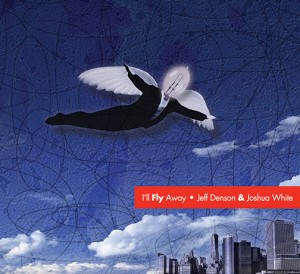 This lovely, simple tune was written by Billy Strayhorn, Ellington’s songwriting associate. While musicians were packing at the conclusion of a recording session three months after the composer’s death in 1967, Ellington sat at a piano and played “Lotus Blossom” unaccompanied, with Strayhorn obviously in mind. Fortunately, the tape kept running so the music was preserved. Probably the most moving performance of Ellington’s long career, “Lotus Blossom” is pure emotion. Because it is, any recording of Strayhorn’s composition will likely be compared with Ellington’s and risk being deemed inferior. Possibly as a result—or because of the inherent nature of the composition--musicians performing “Lotus Blossom” follow Ellington’s example by treating it respectfully, ruminatively. With Smith discreetly in the background, this is precisely what Colella does in his interpretation that, though less deep than Ellington’s, is beautiful nonetheless. It succeeds on its own terms.
This lovely, simple tune was written by Billy Strayhorn, Ellington’s songwriting associate. While musicians were packing at the conclusion of a recording session three months after the composer’s death in 1967, Ellington sat at a piano and played “Lotus Blossom” unaccompanied, with Strayhorn obviously in mind. Fortunately, the tape kept running so the music was preserved. Probably the most moving performance of Ellington’s long career, “Lotus Blossom” is pure emotion. Because it is, any recording of Strayhorn’s composition will likely be compared with Ellington’s and risk being deemed inferior. Possibly as a result—or because of the inherent nature of the composition--musicians performing “Lotus Blossom” follow Ellington’s example by treating it respectfully, ruminatively. With Smith discreetly in the background, this is precisely what Colella does in his interpretation that, though less deep than Ellington’s, is beautiful nonetheless. It succeeds on its own terms.
While mood characterizes Colella and Smith’s CD, bassist Jeff Denson and pianist Joshua White’s is unified by the nature of the tunes, which are religious in nature. Their CD gets off to a rousing start and concludes with a bang with different versions of “I’ll Fly Away.” (A third version is more restrained.) Raucous and dissonant, these two selections are, with “Just As I Am,” the most extroverted pieces on this release, though other ones have passionate moments. Yet Denson and White also demonstrate an ability to sustain a performance at a slow tempo. For example, their deliberate treatment of “What a Friend We Have in Jesus,” the longest selection, permits the natural beauty of the composition to emerge. Played not quite so slowly, “In the Garden” is similarly attractive, and moving. On all nine tunes the instrumentalists play together, they interact engagingly. Though Denson solos, he is most important when keeping the beat during White’s adventuresome solos. White’s playing sometimes reminds me of Don Pullen’s.
Denson performs two tunes unaccompanied, “Crying in the Chapel” (pizzicato) and “Amazing Grace” (arco). Played slowly, the latter is more impressive than the former. On “Amazing Grace” he makes multiphonic sounds that lead one to wonder if they result from overdubbing. (They do not.) This technique creates great interest in his version of this revered song that, at least for me, long ago entered the realm of cliché, possibly because I have heard it at so many funerals.
Though different in almost every way other than instrumentation and a high level of musicianship, these two CDs delight. With varied selections, the first is similar in mood throughout. With unified selections, the second has a wide range of moods. Both duos make meaningful contributions to the tradition of piano-bass duets possibly initiated by Duke Ellington and Jimmy Blanton in 1940.
Author = Benjamin Franklin V
Music Charts Magazine® History
- Song for the month of July 2014:
Toby Keith - "Courtesy of the Red, White and Blue"
"Courtesy of the Red, White and Blue (The Angry American)" is a song written and recorded by American country music artist Toby Keith. The song was written in late 2001, and was inspired by Keith's father's death in March 2001, as well as the September 11, 2001 attacks on the United States later that year. It was released in May 2002 as the lead single from the album, Unleashed. The song topped the Billboard Hot Country Singles & Tracks chart and reached number 25 on the Hot 100 chart becoming his biggest solo hit on that chart.
On March 24, 2001, Keith’s father, Hubert Keith (H.K.) Covel, was killed in a car accident. That event and the September 11, 2001 attacks prompted Keith to write the song "Courtesy of the Red, White, & Blue (The Angry American)", a song about his father’s patriotism and faith in the USA. It took him 20 minutes to write the song. At first, Keith refused to record the song and only sang it live at his concerts for military personnel.
The reaction was so strong that the Commandant of the Marine Corps James L. Jones told Keith it was his duty as an American citizen to record the song. "It's your job as an entertainer to lift the morale of the troops," Jones said to Keith. "If you want to serve, that is what you can do." As the lead single from the album Unleashed (2002), "Courtesy of the Red, White, & Blue" peaked at number 1 on the country charts over the weekend of July 4.
In a November 2003 interview with CBS, Keith gave his take on the song: “It wasn’t written for everybody. And when you write something from your heart - I had a dad that was a veteran, taught me how precious our freedom is - I was so angry when we were attacked here on American soil that it leaked out of me. You know, some people wept when they heard it. Some people got goose bumps. Some people were emotionally moved. Some cheered, turned their fists in the air.”
The line, "'cause we'll put a boot in your ass / it's the American way," is part of the introduction of the Sean Hannity radio show that is played at the beginning of each hour.
Read more at:
http://en.wikipedia.org/wiki/Courtesy_of_the_Red,_White_and_Blue_(The_Angry_American)
 Music Charts Magazine® Presents – “NEW DISCOVERY” – “Kayla Adams“- for the month of July 2014.
Music Charts Magazine® Presents – “NEW DISCOVERY” – “Kayla Adams“- for the month of July 2014.
Looking for some “New” music to add to your player and can’t find anything that blows you away?
Check out this Music Charts Magazine® “NEW DISCOVERY” Interview with “Kayla Adams” and be prepared to be excited knowing there is still 100% awesome music out there that you still have not heard.
After you listen to this great radio interview pasted below of “Kayla Adams” we are sure you will be glad you found this “New Discovery” and Kayla’s song “Sober & Sorry” to add to your music playlist.
Newcomer KAYLA ADAMS is lighting a fire at radio with her debut single, “Sober & Sorry” (SSM Entertainment). The track, available to radio now via CDX 597 (Track 5) and Play MPE, is a Rock-tinged, straight-shootin’ Country girl’s answer to good love gone bad. Written by Adams, Billy Atherholt (Montgomery Gentry, Chris Daughtry) and Pete Nanney (Chris Daughtry),“Sober & Sorry” tells a tale of a woman wronged and vengeance sought. Inspired by a past relationship, Kayla confides, “I didn’t burn his house down, but I wanted to. Instead, I just walked away.”
These matches-getting restless
Don’t wanna-feel useless
Kerosene in my truck, been waiting all year to burn somethin’ up
You’re out-with the guys
Well that ain’t no surprise
I’m tired of waiting by the phone
Gonna have a little party of my own
You’ll wake up sober and sorry
Start a fire, bring the hurt
Pile it up, watch it burn
First the keys to your car
Then your records and your old guitar
All your clothes turned to dust
Every last picture of us
Believe me you’ll wake up sober and sorry
Adams’ voice grabs the listener like a vice; the razor sharp electric guitar of JT Corenflos drives a track that pounds with the prominent bass of Mark Burchfield and the rock-solid beat set by stick master Steve Brewster. Music City legend Wanda Vick weaves her magic on dobro, mandolin, acoustic guitar and banjo while Jeff Roach slices the keys in counterpoint to Mike Payne’s gripping guitar work. Produced by Marlon Dean Scallan, the single offers an immediacy that demands the listener’s attention – and keeps it; heart pounding and a**-kicking.
Kayla performed the song for an enthralled crowd at Renegade Radio Nashville All-Star 3rd Anniversary Party during CMA Music Fest Week. This week, the blond, blue-eyed 24-year-old beauty will visit programmers in New York as she continues her radio promotion tour that has already hit stations in Arkansas, Kentucky and Tennessee.
RADIO is saying:
“In a world of pre-fabricated singers she is a genuine, bona fide artist … if Nashville is looking for the next big female artist they should feast their eyes and ears on Kayla.”
– Jarrett Jackson, KCJC FM
“A breath of fresh air in a musical environment that’s primed for someone new, exciting and real. Her voice, emotion and conviction make Kayla today’s newest and brightest ray of sunshine.”
– JR Runyon, KCNY FM
“Kayla Adams is ‘spitfire country’ and full of energy!”
– Robert Freeman, WDKN FM
“She sings, plays guitar, writes songs and has a fantastic personality. All the ingredients to be a ‘Country Star.’”
– Tom Duke, KQUS FM
ABOUT KAYLA
An avid outdoorswoman whose thought-provoking songwriting is as melodic as it is memorable, Kayla draws inspiration for her songs from the wide open spaces of her Montana farm raising. One of the most exciting young female contemporary Country singers to hit the Nashville music scene in recent years, Adams captivates live audiences with her honesty and a genuine love for people and for the music. At 24, she is already a veteran of years on the stage – as both a band member and solo performer – in her home state and throughout the U.S. To date, Kayla has shared the stage with acts as diverse as Kellie Pickler, Rodney Atkins, LL Cool J, Heidi Newfield, and Smashmouth. A self-proclaimed computer geek, she has attended both Belmont University (Nashville) and the famed Musicians Institute College of Contemporary Music (Hollywood). Kayla currently resides in Nashville with her Yorkshire Terrier, Tory. She loves giant roller coasters, enchiladas, Italian food, her Smart Car and Ford F350 Superduty Crew Cab Long Box truck. In her spare time, Adams enjoys Snowboarding, boating, wakeboarding and hunting.
For more information on Kayla Adams visit –
Radio interested in how to obtain this music please contact us on our contact page and we will be glad to get it to your radio station for radio play. Many thanks to those of you who have already played it.
To find out more about Kayla Adams:
-
www.KaylaAdamsMusic.com
-
www.facebook.com/kaylaadamsband
-
www.twitter.com/kaylaadamsmusic
-
www.instagram.com/kaylaadamsmusic
-
www.reverbnation.com/kaylaadamsmusic
-
www.youtube.com/kaylaadamsband
Music Charts Magazine® NEW DISCOVERY for the month of June 2014 – Music Charts Magazine® proudly presents “NEW DISCOVERY” for the month of July 2014 “Kayla Adams“– feature song – “Sober & Sorry“
LISTEN to the “NEW DISCOVERY” Interview with Kayla Adams – HERE:
Music Charts Magazine® Presents “New Discovery” Kayla Adams featuring the song “Sober & Sorry” – Interview by Award winning DJ Big Al Weekley
Music Charts Magazine® Presents NEW DISCOVERY “Kayla Adams” – Interview by Big Al Weekley
Copyright © 2012 – 2014 Music Charts Magazine, INC – All Rights Reserved. Contents of this site including text and media may not be reproduced without prior written consent. Audio and video elements of this site are property of their respective owners and are used with permission.
Artist name = The Fat Babies
Genre = Jazz
Title = 18th & Racine
Record company = Delmark
Review =
Why is it that some established forms of improvised music are more valued than others? Though bebop developed in the early 1940s, for example, it is possibly the form of jazz played most frequently. Traditional jazz, however defined, is less highly regarded. One reason for this disparity might be that the more modern music is complex and therefore demanding while the older is sometimes simple and presumably easy to play. Bebop is still capable of yielding surprises; traditional jazz, less so. On “High Society,” can any traditional clarinetist escape the influence of Alphonse Picou’s solo from the distant past?
Whatever the answer(s) to the question, traditional jazz continues being performed by serious musicians. Vince Giordano’s Nighthawks is probably the most notable traditional group; bassist Beau Sample’s Fat Babies is another one. Founded in 2010 and headquartered in Chicago, this septet plays compositions mainly from the 1920s and early 1930s. Its music is vital partly because most of its repertoire, as represented on 18th & Racine, is not overly familiar. Yes, “Stardust” is one of the most popular tunes in all of American music and anyone interested in traditional jazz doubtless is aware of “Nobody’s Sweetheart,” but the remaining thirteen selections are less well known. Among them are creations by such stellar musicians as Fletcher Henderson, James P. Johnson, Jabbo Smith, and Clarence Williams.
So what does the band bring to these more-or-less neglected compositions from long ago? At least two things: First, it plays well and energetically; second, it performs some tunes in a manner consistent with the original recordings of them while refashioning others. Consider the second point. Despite being twenty seconds longer than Jabbo Smith’s recording of “Till Times Get Better,” the septet’s version follows the structure of Smith’s. Both begin with a piano introduction (including three identical opening notes). Then, the cornet states the melody, a musician sings, the clarinet solos, and the cornet concludes the piece. The group takes liberties with Fletcher Henderson’s “The Stampede,” giving the opening melodic statement to the cornet rather than the ensemble and otherwise redistributing the solos among the horns; the new recording is over a minute longer than Henderson’s. In other words, the band’s approach to its material is not predictable.
Two selections require special comment. The corny vocal on “I’ll Fly to Hawaii,” recorded initially by Brad Gowans in 1926, makes it irredeemable. This might be the first recording of the tune since the second recording of it--by Julian Fuhs in 1927. The reason for its neglect is obvious. With many old songs worthy of reconsideration, I wonder why leader Sample chose “I’ll Fly to Hawaii” for inclusion on this CD. James P. Johnson’s “Blueberry Rhyme” is a piano solo by Paul Asaro, backed only by drummer Alex Hall on brushes. The composer recorded it twice (1939, 1943), both times as an unaccompanied piano solo. It became something of a favorite of Asaro, who recorded it at least four times as leader, all in 2004. That his and Hall’s version is polished therefore comes as no surprise.
The music on 18th & Racine shows that in the hands of spirited instrumentalists, traditional jazz played unpredictably is still viable.
Author = Benjamin Franklin V
About Fred’s Country program:
Le program Fred’s Country: La musique Country de Tradition avec Frederic (Fred) Moreau. Le program Fred’s Country est diffusé sur 65 fréquences FM, 54 radios ou webradios.
Radio Show Host: Fred Moreau
Program Fred’s Country w26-2014 – 27 Juin 2014 à 15:00 – June 27th, 2014
Music Charts Magazine is proud to be friends with Mr. Moreau and glad to now be one of the many to host Program Fred’s Country. ( French/English)
Artist Name = Lena Bloch
Genre = Jazz
Title = Feathery
Record Company = Thirteenth Note
Review =
Among the jazz musicians born in Russia are Buzzy Drootin, Valery Ponomarev, Alexei Kuznetsov, members of the Ganelin Trio (Vladimir Chekasin, Vyacheslav Ganelin, and Vladimir Tarasov), and possibly Charlie Spivak. To this list may be added Lena Bloch, hitherto unknown to me. Born in Moscow, the tenor saxophonist has led, since 1989, a peripatetic life: Israel, Holland, Germany, United States, Germany again, Canada, Germany yet again, and finally United States, this time initially in Boston but then in Brooklyn, where she currently resides. Along the way she received a degree from the Cologne Conservatory and attended graduate school at the University of Massachusetts, Amherst. In Europe around 1991 she began playing professionally, including with the rock group Embryo and as leader of her own quartet. Soon thereafter she met alto saxophonist Lee Konitz, who introduced her to music that would inspire her from then until now. This is the music of pianist-composer-theorist-teacher Lennie Tristano (1919-1978) and his associates Ted Brown and Warne Marsh, both tenor saxophonists; himself a Tristano student and colleague, Konitz is the best known musician of what might be called the Tristano School. As Feathery demonstrates, Bloch is, apparently, the most recent instrumentalist influenced by Tristano and dedicated to keeping alive his precepts, as practiced by his acolytes. She creates music well worth hearing and taking seriously.
Bloch is possibly most indebted to Marsh and Brown in matters of tone: like theirs, hers is dry, with little vibrato. She plays cleanly by articulating individual notes and avoiding flurries of sixteenth notes. Each note matters. This tendency is perhaps most obvious on “Baby Suite” and “Starry-Eyed.” On the former, she plays strings of single notes, each note followed by a rest; on the latter, which is really the standard “Star Eyes,” she usually pauses between the notes that correspond to the words “star” and “eyes,” “eyes” and “are,” and “skies” and “are” when sung. This separation of notes creates an airiness that parallels the tone she gets from her horn. Especially at slow tempo, her technique has the effect of forcing the listener (this listener, anyway) to focus intently on her playing. (Altering aspects of a popular tune and renaming it is part of the Tristano tradition. His “Lennie’s Pennies,” for example, is a reworking of “Pennies from Heaven.”)
Bloch drew on Marsh and Brown for two of the tunes included on Feathery. Though not flagwavers, they are the most
Lena Block - Feathery - Music Charts Magazine Jazz CD Review by Benjamin Franklin V
sprightly performances on the CD. Marsh’s “Marshmallow” is based on the chords of “Cherokee”; Brown’s “Featherbed,” on those of “You’d Be So Nice to Come Home To.” She acknowledges Konitz with an original tune titled “Hi-Lee,” which alludes to his composition “Hi Beck.”
If the Marsh and Brown compositions are up-tempo, guitarist Dave Miller’s “Rubato” is the opposite. Though it contains a section of relatively energetic playing, that section is framed by music performed at a dirge-like tempo. Amazingly, the group, a quartet, engages in effective collective improvisation at this tempo. Billy Mintz’s drum solo is so slow that it barely moves. As with Bloch’s own playing, though, this deliberateness—almost stasis—forces the listener to focus on the sounds Mintz creates. Bassist Cameron Brown—a major presence throughout the CD and the composer of “Baby Suite”—plays arco, while Miller provides chords and joins the leader in unison passages. “Rubato” is an impressive performance.
Yet all the music on this release is impressive. Feathery signals the arrival of a significant musician, Lena Bloch. Not only does she help keep alive the Tristano tradition, but her music is among the most stimulating I have heard recently.
Author = Benjamin Franklin V
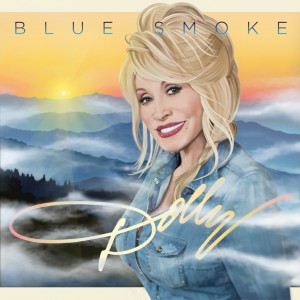 Dolly Parton has done just about everything a person can do in one lifetime, and it doesn’t appear that she’s about to slow down. She still tours, the U.S. and the world. She’s still working behind the scenes at her theme parks, and she is very involved in the Imagination Library, where children are provided a free book every month through the age of five. She has an honorary doctorate, she’s worked with Girl Scouts, she has been in movies, written songs, and been nominated for at least one Tony Award, Emmy Award, Grammy Award…the list goes on Dolly recently released her 42nd studio album. I listened to the review copy for several weeks before it was officially released on May 13. She always has something different to offer her fans. We’re talking about Dolly Parton here. A unique, recognizable voice that can sing any kind of song out there. And, the new album definitely shows us that. The album includes the song “You Can’t Make Old Friends,” which features Kenny Rogers, and “From Here to the Moon and Back,” with Willie Nelson. The album has an old Bob Dylan song, “Don’t Think Twice”. And, the album has nine songs that Dolly wrote. Dolly actually started recording in 1959. She became a huge success in the mid 1960s, putting out hit after hit. When the sound of country music changed, Dolly changed with it. But somehow, she never left the sound of real country music behind. She has the ability to let us hear her gospel sound, her folksy sound, her country sound, and for certain a little of that bluegrass side. You can dance to Dolly’s music, you can sing along with it, you can cry with it. But, whatever reaction each song generates, you are for sure going to enjoy it. Here are the songs you are going to get on this new album: Blue Smoke, Unlikely Angel, Don’t Think Twice, You Can’t Make Old Friends, Home, Banks of the Ohio, Lay Your Hands on Me, Miss You-Miss Me, If I Had Wings, Lover Du Jour, From Here to the Moon and Back and Try. First time through the album, I had a few favorites. Second time through, I changed my mind, and picked different favorites. But by the third time I listened, I realized there is something to like about each and every one of the songs on the CD. This is one of those albums that will find you are really listening to the lyrics. “Try” and “Unlikely Angel” remained two of my favorites, no matter how many times I listened. Dolly is very convincing when she tells the listener, “And if you fail at first just keep on trying, ‘Cause you are not a failure in God’s eyes, So spread your wings and let the magic happen, ‘Cause you’ll never really know if you don’t try”.
Dolly Parton has done just about everything a person can do in one lifetime, and it doesn’t appear that she’s about to slow down. She still tours, the U.S. and the world. She’s still working behind the scenes at her theme parks, and she is very involved in the Imagination Library, where children are provided a free book every month through the age of five. She has an honorary doctorate, she’s worked with Girl Scouts, she has been in movies, written songs, and been nominated for at least one Tony Award, Emmy Award, Grammy Award…the list goes on Dolly recently released her 42nd studio album. I listened to the review copy for several weeks before it was officially released on May 13. She always has something different to offer her fans. We’re talking about Dolly Parton here. A unique, recognizable voice that can sing any kind of song out there. And, the new album definitely shows us that. The album includes the song “You Can’t Make Old Friends,” which features Kenny Rogers, and “From Here to the Moon and Back,” with Willie Nelson. The album has an old Bob Dylan song, “Don’t Think Twice”. And, the album has nine songs that Dolly wrote. Dolly actually started recording in 1959. She became a huge success in the mid 1960s, putting out hit after hit. When the sound of country music changed, Dolly changed with it. But somehow, she never left the sound of real country music behind. She has the ability to let us hear her gospel sound, her folksy sound, her country sound, and for certain a little of that bluegrass side. You can dance to Dolly’s music, you can sing along with it, you can cry with it. But, whatever reaction each song generates, you are for sure going to enjoy it. Here are the songs you are going to get on this new album: Blue Smoke, Unlikely Angel, Don’t Think Twice, You Can’t Make Old Friends, Home, Banks of the Ohio, Lay Your Hands on Me, Miss You-Miss Me, If I Had Wings, Lover Du Jour, From Here to the Moon and Back and Try. First time through the album, I had a few favorites. Second time through, I changed my mind, and picked different favorites. But by the third time I listened, I realized there is something to like about each and every one of the songs on the CD. This is one of those albums that will find you are really listening to the lyrics. “Try” and “Unlikely Angel” remained two of my favorites, no matter how many times I listened. Dolly is very convincing when she tells the listener, “And if you fail at first just keep on trying, ‘Cause you are not a failure in God’s eyes, So spread your wings and let the magic happen, ‘Cause you’ll never really know if you don’t try”.
For everything you want to know about Dolly, visit her web site at dollyparton.com. You can follow her on Twitter, too, @DollyParton. Country music news and reviews are always available at www.countryschatter.com, and you will find us on Twitter @countryschatter.
Music Charts Magazine Country music CD Review of Dolly Parton - Blue Smoke - by Donna Rea /of the website we all know and love: www.CountrysChatter.com
Artist Name = Sonny Rollins
Genre = Jazz
Title = Road Shows, Volume 3
Record Company = OKeh
Review =
Some superior Sonny Rollins performances have been made available in recent years as a result of his decision to release selections from concerts on his own label, Doxy. The first CD appeared in 2008, and the second three years later; the third has just been issued on OKeh, sixty-five years after his initial recording (with Babs Gonzales) in 1949. His desire to circulate this worthwhile music as he ages (he was born in 1930) is understandable; it is also cause for celebration.
Recorded in France, Japan, and St. Louis, the six selections come from 2001, 2006, 2007, 2009, and 2012 (two). At over fifteen and twenty-three minutes, respectively, the standards “Someday I’ll Find You” and “Why Was I Born?” are the longest ones. (Could some of the former, a Noel Coward composition, have influenced Thelonious Monk when he was writing “Ask Me Now”?) Two Rollins originals are familiar (“Biji” and “Don’t Stop the Carnival”), while he wrote “Pantanjali” only recently. A curiosity, “Solo Sonny” is more a melange than a unified whole.
Though all of Rollins’s recordings are worth hearing, even the least inspired ones, the music on Road Shows, Volume 3, which is of almost uniformly high quality, supports the view that Rollins usually plays better in live performances than on studio recordings. Aided by effective rhythm sections, his rhythmic drive is impressive on “Biji,” “Don’t Stop the Carnival,” “Pantanjali,” and “Why Was I Born?” He plays only “Someday I’ll Find You” relatively slowly. His tone is as full bodied and attractive as ever. His inventiveness never flags. Though the other soloists (trombonist Clifford Anderson, pianist Stephen Scott, and guitarists Bobby Broom and Peter Bernstein) are adequate, they are largely of incidental interest; they mostly fill time as the high-energy leader rests and recharges. He is the main attraction.
I find two aspects of this release irritating. One is “Solo Sonny.” Played without accompaniment, it consists entirely of quotations from familiar tunes that lack any obvious connection. Its presence on this CD indicates Rollins’s approval of it, and many listeners will probably consider it a highlight, going so far as to attempt to identify all the compositions from which Rollins quotes. Yet it strikes me as a stunt, an exercise appropriate for a practice session, not a concert. I wonder why Rollins values “Solo Sonny” and decided to release it instead of something else from among the hours of unissued concert performances to which he doubtless has access.
That these performances deserved enthusiastic audience response is obvious, but too much of it is retained on this CD. The applause totals five minutes, time that could have been given to the inclusion of another musical selection. People listening to this release more than once at a single sitting will have to endure two full minutes of applause between the end of the final selection and the beginning of the music on the first one. Around forty seconds of clapping typically separate tunes, applause that, in linking one piece to another, creates the impression that the selections were played in sequence at the same concert. Nothing would have been lost, and something would have been gained, from significantly reducing the amount of audience response to Rollins’s playing. This sublime music does not need the validation implied by excessive applause.
These reservations aside, the third volume of Road Shows is a major addition to the rich recorded legacy of Sonny Rollins. I hope he will release, or permit others to release, additional concert material of similar quality.
Author = Benjamin Franklin V
About Fred’s Country program:
Le program Fred’s Country: La musique Country de Tradition avec Frederic (Fred) Moreau. Le program Fred’s Country est diffusé sur 65 fréquences FM, 54 radios ou webradios.
Radio Show Host: Fred Moreau
Program Fred’s Country w25-2014 – 20 Juin 2014 à 15:00 – June 20th, 2014
Music Charts Magazine is proud to be friends with Mr. Moreau and glad to now be one of the many to host Program Fred’s Country. ( French/English)
